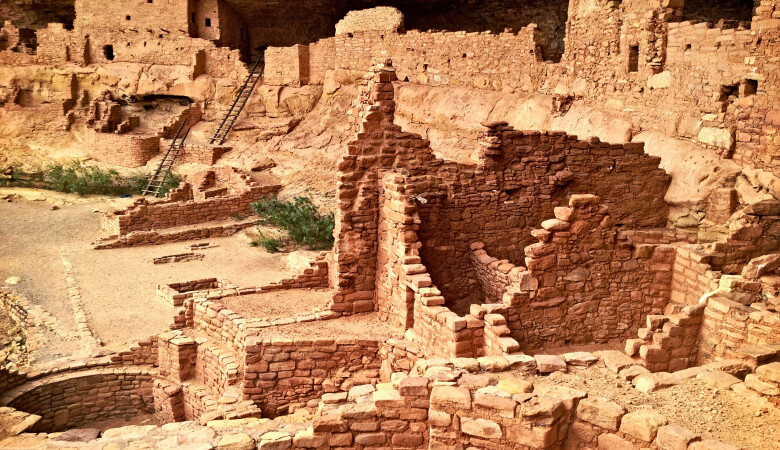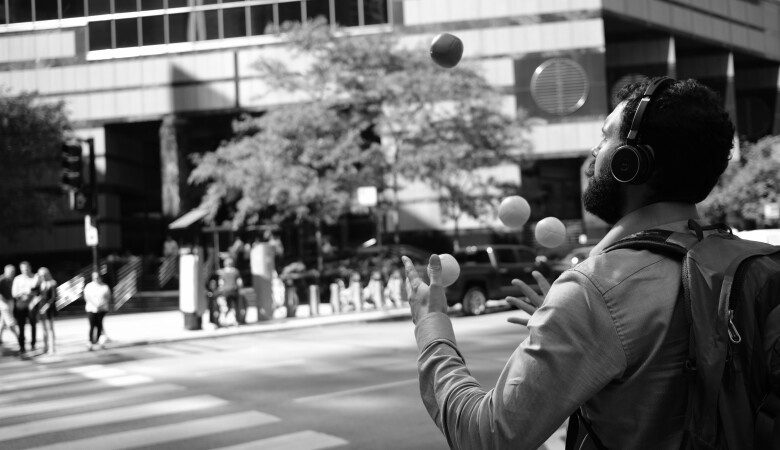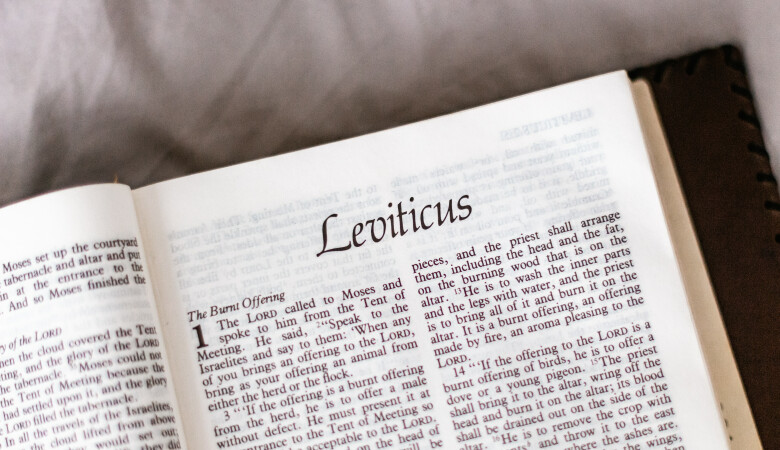Let Us Live the Covenant Life (Hebrews Sermon 40 of 74)
September 11, 2011 | Andy Davis
Hebrews 10:19-25
Brotherly Love, Church Membership
Facing Mortality: Remembering September 11th
Well, I'm sure all of you that are old enough to remember the events of 10 years ago today are thinking about it, have been thinking this week. I know I have. I will never forget that day. I remember hearing as I was driving to church that a plane had crashed into the World Trade Center. I had pictured a little two-seater or something like that hitting a radio antenna at the top. I hoped that the person would survive, although I thought if we're hearing about it, probably they didn't. Those are my thoughts. It wasn't until we got here that we realized the magnitude of what happened. And I think the one image that sticks in my mind from that dreadful morning was the tower is literally coming down. That's the thing that sticks with me still. And as I was watching on YouTube this week, just clips from that day, a just horrifying moment for people, people crying out, "Oh my God, my God, my God," running, that kind of thing and just facing death, you know, mortality, facing that.
The fact that, as I just prayed a moment ago, all of the achievements of our hands, are there's nothing. Those towers just seemed to melt to me. That's the word, the verb, I just give you, is they just melted. They just disappeared that quickly. Now it's been 10 years. And, you know, I think about those 10 years, and it's so many thoughts in my mind. One of the things is just the brevity of life. That's 10 years of my life and yours. And for me, that's good. I've been thinking good thoughts about that. I'm 10 years closer to heaven, 10 years of futile attack by Satan against my soul. Amen, hallelujah. For 10 years, he's been trying to get me to turn away from Jesus and he's failed. To God be the glory for that. I'm still a Christian 10 years later. So are you. And to God be the glory. And if you're taking credit for that, then get back in the word and realize it isn't you, but you've been held with a mighty hand now for 10 years. Praise God for that. Time goes by quickly. Our lives are brief.
And thank you Janet and Lin for that testimony. It's just we are here for that. We're here for labor and for good works. We're going to talk about that in the text today. This is why God left us here. And so, let's redeem the time. Let's get the word out. God is not frustrated. He's not thwarted. He's on his throne. The kingdom is advancing.
I mean it may feel just as you look at one level politically or militarily that terrorism is every bit as much a threat as it was then. What have we achieved in 10 years? But I just look at things differently, and I just think the issue is the advance of the Gospel of Jesus Christ. Has God been failing for 10 years? No, he has not. And think of all the thousands, tens of thousands of new brothers and sisters that have come into the kingdom in that time. So to God be the glory. And I can think of no better book than the Bible to be studying with you now in the 10th anniversary of the 9/11 attacks than the Book of Hebrews. We already saw in a message I preached recently from Hebrews 12, we're receiving a kingdom that cannot be shaken. The earth can shake. Everything here is temporary. But we are receiving a kingdom that cannot be shaken.
And so, rejoice in that while we are so reminded, like Paul said, sorrowful yet always rejoicing. We know that we've been given this kingdom that cannot be shaken. And so, as we look at Hebrews 10 today, verses 19-25, we come to an important kind of fork in the road or turning point in the Book of Hebrews. The author has been telling us the glories of the New Covenant, the glories of the achievement of Jesus Christ on the cross. He's been making that clear. He summarizes that again briefly in this text. But now he turns and says, "Okay, if we have all of these gospel riches, what kind of lives should we live?" And, by the way, this is a common pattern in the New Testament. Again and again, you see this in the Epistles how the author, usually Paul, will lay out doctrine and then at some point say, "Okay, how then shall we live? What kind of lives ought we to live in view of these truths, in view of these mercies of God?" Or, "How should we live our lives in that all of these doctrinal things are true?"
And so There's basically a two-part outline to the message of the text today what it is that Christ has given us and what is Christ commanding us to do. And so the author just quickly lists a catalogue of blessings that we have been covering in detail up to this point in the Book of Hebrews. And then, he turns and starts using... Five times he uses this expression, "Let us. Let us do this. Let us do that," etcetera. And that's a five part outline of the second half of the message. And so, we're going to be looking this morning at what Christ has given us, and that really by way of review, and then we're going to turn and ask, "Okay, what kind of lives should we live?"
I. What Christ Has Given Us
And so the author starts in Verse 19 and following. It says, "Therefore, brothers, since we have confidence to enter the most holy place by the blood of Jesus, by a new and living way opened for us through the curtain, that is, his body, and since we have a great priest over the house of God." So the first thing that I want to tell you that Christ has given us is he has given us his body and his blood. He's given us his flesh. Literally in the Greek, it says flesh in Verse 20. He has given us his flesh. And in Verse 19, the blood of Jesus mentioned again. And so, we have again a mention of the actual physical nature of the gift of Jesus Christ. He gave everything he had.
Earlier in Chapter 10 we saw sacrifice and offering. God did not desire, but a body he prepared for Jesus and that Jesus has shed his blood. The blood of bulls and goats and animals cannot, it is impossible for them to take away sin. And so, God ordained that the blood, the precious blood of his own son, would avail for us. And so we have the body and the blood of Jesus, and this points also to the priestly ministry of Jesus. Jesus is there as our great priest over the house of God it says, pleading the merits of his achievement for us. And so we have that once for all sacrifice of the body and blood of Jesus and we have that ongoing priestly ministry of Jesus at the right hand of God, and he is there as a great priest over the house of God, a picture of Jesus's authority. He is reigning and ruling over the house of God, and we are that house we were told earlier.
And so here is the picture of sovereign Jesus our great priest, and he's there at the right hand of God. As we have talked about earlier, he is interceding for us. So these are things that we have. And from that we have a perfect atonement. We have a perfect atonement. If you go ahead to Verse 22, it says, "Having our hearts sprinkled to cleanse us from a guilty conscience, and having our bodies washed with pure water." The giving of the body and the blood of Jesus is sufficient for the atoning of our sins. Jesus said mysteriously, but to us I think it's clear, in John 6, "Whoever eats my flesh and drinks my blood has eternal life and I will raise him up at the last day, for my flesh is real food and my blood is real drink."
A complete mystery to the people who heard him the first day he spoke it. But now we understand the giving of the flesh and the blood of Jesus was for atonement, his death on the cross sufficient for us. And so we have a perfect standing with God. As we just sang in that beautiful hymn before the throne, we have a perfect standing with God, all of our sins forgiven. And we have a cleansed conscience. Our consciences are cleansed by the blood of Jesus. We have a perfect atonement. We can't have any better standing. It's impossible for us to have a better standing with God than we do in Jesus. These are gifts of grace that God has given, and it speaks there of "having our bodies washed with pure water."
Different ways of interpreting that. What is it referring to? Some go back to the Old Covenant where Aaron and his sons in Exodus 29:4 were brought to the entrance of the tent of meeting and it was commanded that they should be washed with pure water, the implication that they had to be cleansed from their sins before they were fit to enter into the presence of God. So that's a symbolic picture, that cleansing of Aaron and his sons, to enable them to come into God's presence. Maybe the author was picking up on that. Others say it's referring to Christian baptism, water baptism.
And so we have in 1 Peter 3:21, "This water symbolizes baptism that now saves you also, not the removal of dirt from the body, but the pledge of a good conscience toward God." And that's fine too, but I think for me, it just goes to the issue of what it is the atoning sacrifice of Jesus accomplishes for me, the cleansing, the purifying of my life, my standing inside and out, the purifying of my heart, the cleansing of my life by the atoning work of Christ. And so we have in Ephesians 5, for example, husbands are to love their wives "as Christ loved the church and gave himself up for her to make her holy, cleansing her by the washing with water through the word, and to present her to himself as a radiant church without stain or wrinkle or any kind of blemish, but holy and blameless."
So that's the washing with pure water that I see here is the work of Jesus Christ on his bride, the church, cleansing us and making us holy where it says in Titus 3:5 that he saved us not because of any good works that we have done, but because of his own grace. He saved us by the washing of rebirth and renewal in the Holy Spirit. And so there's no physical water here, but it's just a symbol. We know that water cleanses, and so the work of the Holy Spirit on us in regeneration cleanses us and makes us fit to stand in the presence of God. Perhaps the best text of all is in the Old Covenant in Ezekiel where the Old Covenant promises very much like Jeremiah are given. And again, we have this washing and this cleansing with water.
Ezekiel 36, "I will sprinkle clean water on you, and you will be clean. I will cleanse you from all of your impurities and from all of your idols. I will give you a new heart and I will put a new spirit in you and I will remove from you your heart of stone and I will give you a heart of flesh, and I will put my Spirit in you and I will move you to follow my decrees and obey my laws." Oh, that's the New Covenant work, isn't it? And at the beginning of all those words were a cleansing, the washing with water through the Spirit. All of those are fine. I think it's pointed to the cleansing that we have. We have a perfect atonement in every way. God is perfectly at peace with you if you're a Christian. We have peace with God, and we have been cleansed both inside and out.
And we ought to meditate much on that internal cleansing. That heart of stone has been taken out now and we have a heart of flesh. We have the mind of Christ. And what that means is our allegiance to and our affection for sin has been severed forever. We owe it nothing and we don't love it. We hate it and we want it gone, Amen? Oh, how we yearn to be clean and pure from all sin. It is the enemy of our souls. We want to be free from it, and we have been positionally set apart from sin. We have been once for all sanctified from it and made holy unto God, and we have been cleansed in every way. But also, there's an implication of what kind of life we are to live.
Our bodies washed with pure water implies what kind of life you're living. You know in Romans 12 it says we're to present our bodies as living sacrifices, and the body is the vehicle of action. And so, having our bodies washed with pure water to me speaks of a sanctified lifestyle, a purified life where we are actually walking as Jesus walked in this world. We are following by the power of the Spirit his laws, his commandments, and obeying them. So we have this as well. We also have, thirdly, access to God's holy dwelling place. It speaks in Verse 20 of a new and living way opened for us through the curtain that is his body. Now, friends, I have plundered this text for months now.
And so it's kind of... You may think it's kind of used up. It's never used up. But I've been going ahead to Hebrews 10 and talking about this, venturing through the living way into the presence of God. But now we're at the text. And so, I'll just mention again by way of review. You know that human beings, the Jews, were forbidden from entering into the most holy place universally, every single Jew forbidden except one man, the high priest, and that only one day a year. He was forbidden from entering into the holy presence of God. But the moment that Jesus died when the curtain in the temple was torn in two from top to bottom, there was physically symbolized there an opening, an access into the presence of God. And this text tells us what it is: By the body of Jesus, by the flesh of Jesus given on the cross, we have an access. We have a new and living way into the presence of this Holy God. And what's amazing here, we have the right to be there.
We have the legal right to be in the presence of a holy God. It says in Romans 5:1-2, "Since we have been justified through faith, we have peace with God through our Lord Jesus Christ, and we have access by faith into this grace in which we now stand." You have the legal right to be there, dear brother and sister in Christ. But this text goes beyond that. You have the moral obligation to be there. You are actually commanded to come into the presence of God. We'll get to that in a moment, but this text goes beyond just that we have the right and the privilege. You're actually now under a moral obligation to be close to God, that by the blood of Jesus, you have this new and living way opened for us. And one more gift he gives us. He gives us boldness or confidence to be there, and what a beautiful gift that is.
"It was grace that taught my heart to fear and it was grace my fears relieved." And so, we don't tremble like those in bondage to sin, trembling that we are about to be condemned by the justice and the wrath of God. But in Verse 19, it says, "We have confidence to enter the most holy place by the blood of Jesus." What is the nature of this? A better translation may be "boldness." Why does it take boldness to enter into the presence of a holy God? We'll just have to read the Bible and know the answer to that one. He is the thrice Holy God who sits on a holy throne. A throne in Daniel 7, this picture is a throne of fire on wheels of fire and a river of fire flowing out from before him. Our God is a consuming fire, all of this fire language speaking of the justice of God and the holiness and the purity of God.
At the very least we would say it's illegal in the Old Covenant for us to be there, and we would come under the death penalty if we ventured into the most holy place and we weren't the high priest and it wasn't the day of atonement. But this goes far beyond that. It just has to do with the character of God, God's perfect holiness. He will lash out against wickedness and evil, and we are evil, and we are wicked apart from Jesus. Jesus said it. It's not the pastor saying, "Oh, here we are again another statement about our wickedness." Jesus said it when he was talking about prayer and about fathers being generous to their children and said, "If you then, though you are evil, know how to give good gifts to your children…"
So we were. But it's not who we are anymore. We have been transformed. And so we now have, because of the blood of Jesus, a boldness and a confidence given us by the Holy Spirit. You have the right to be there. You need to be there. You need to be close to God. We'll get to that in a minute. But you have boldness and confidence to come right into the presence of God.
So, this is what Christ has given us. This is a brief catalogue. If you want the full list, then read the entire New Testament. Amen? Read it all, all of the blessings that are ours in Jesus. This is a very short list, but we have the body and blood of Jesus. We have a perfect atonement. We have access into the presence of God, and he's given us through the Holy Spirit boldness and confidence to be there. Alright, how then shall we live?
II. What Christ Calls Us To Do
And so we turn a corner now in the Book of Hebrews: "Since we have all these things, let us, let us, let us," five times it tells us what we must do. And the first thing that we must do is draw near to God. Now, I've already talked about this a moment ago.
Let Us Draw Near to God
We are commanded to draw near to God in this text. Verse 22, "Let us draw near to God with a sincere heart in full assurance of faith, having our hearts sprinkled to cleanse us from a guilty conscience and having our bodies washed with pure water." First and foremost, the best application of this is come to Jesus for salvation.
Perhaps you were invited here yesterday from the health fair. Perhaps you wandered in off the street. Perhaps you're sitting next to the person who invited you, and you know you're outside of Christ. You know you're not a Christian. You've never made a commitment to Christ. Your conscience testifies that you're not a Christian. You're lost. But this text tells you what to do. Draw near to God by faith in Jesus. Accept his cleansing, the cleansing work of Jesus. Don't leave this place in an unregenerate state. Don't leave this place with God as your enemy.
Rather as your adopted father. Let him adopt you as a son and daughter of the living God. Draw near to God by faith. Come to Christ. Trust in him. Well, you could say that this text is written to Christians. Is there no application for me? What if I've already come to Christ. Well, come to him again. Draw near to him again. Have you never felt distant from God as a Christian? This text urges you as a believer to draw near to God. And so here we get to this great gift, this command, but also the gift of intimacy with God here and now. I'm not talking about a heavenly blessing. This is not talking about heaven. It's a command now, that here and now while we are in the body, before we die, that we should live very close to God, that we should draw near to God. Now, how do I know that? Well, it says in full assurance of faith.
Friends, you don't need that in heaven. There's no need for faith in heaven. What is faith? We'll learn about it in a few weeks. In Hebrews 11:1, "Faith is the assurance of" what? "Of things hoped for." But Romans 8 tells us we don't hope for what we already have. You won't be hoping in heaven. You'll have all your hopes realized in heaven and it's the conviction of things not seen. Well, this will not be one of the things not seen in heaven. You will see God's face. You will be in his presence in heaven. No, this is for right here and right now that you should receive through the Spirit that deposit guaranteeing your full inheritance.
Give me a bigger stipend check, Father. I want more of foretaste of heaven. I want to be close to you. I want to have a sense of intimacy with you. I want to walk in the light of God every day. I want to be in his presence. It's what old mystics call practicing the presence of the Lord, that kind of thing. It's what it was said of Enoch and Noah that they walked with God. Enoch walked with God and then he was no more, for God took him away. And Noah walked with God. Abraham walked with God. Let us walk with God. Walk implies an everyday life, just whatever you're doing, your chores, your errands, as you're driving in the car, as you're doing housework or work out in the yard, as you're at your work, your employment during the week, you're going to be with Jesus. You're going to be close to God. Let us draw near to God.
This is the greatest earthly gift God could give you, a sense, an immediate sense of his presence in your life. He's here with you now in manual, God with us. He is with you now and he loves you and he will help you and he will protect you, and you're commanded here to draw near to him. It's what the psalmist found in Psalm 73, this great, great blessing. You remember Psalm 73 where the psalmist is complaining about the prosperity of the wicked and he's frustrated about how well the wicked people do and he wishes he could have some of that, some of that material blessing, some of all that physical health. It seems their bodies are always strong and everything goes well for them all the time, and they're wicked, lawless people.
And the psalmist essentially says, "Everything was frustrating to me and I almost stumbled away from a healthy faith in God until I entered the temple and realized their final end and what it is they're going to get because God puts them in slippery places. And at some point, the judgment of God catches up with them." But then he says so beautifully at the end of the psalm, "My heart was grieved and my spirit embittered. I was senseless and ignorant. I was like a brute beast before you." I have days like that. I have times in which through unbelief, through sin, I act like an animal. "Yet I'm always with you. You guide me by my right hand. You guide me and help me with your counsel, and afterward, you will take me into glory. Whom have I in Heaven but you and Earth has nothing I desire besides you. My flesh and my heart may fail, but God is the strength of my heart and my portion forever. Those who are far from you will perish. You destroy all who are unfaithful to you. But as for me, it is good to be near God."
Well, that's what we're talking about here in this text. Let us draw near to God. Don't stay away. Satan is constantly assaulting your souls with temptation to keep you in some sense distant from God. You feel like you don't deserve to come closer. You will never deserve to come closer, has nothing to do with what you deserve. Do you realize you have no better standing on your own merits, on your most obedient day of your life, to stand close to this holy God than you do on the most disobedient day of your Christian life? You have equal standing in and of yourself and that is zero. But in Christ, you have the right and are commanded to draw near, to come close. Sins damage your assurance. They damage your boldness and confidence. But they do not damage your standing before our Holy God.
And so make intimacy with God your top priority every day. Start your day with a quiet time. Be in the word and make a central goal of your quiet time a sense of the presence of God in your life, a sense of his love for you, that he loves you in Jesus. Pursue it and don't wait, don't stop until you get it. Develop a hunger and a thirst. Like in Psalm 63, "My soul yearns for you. I'm hungry. I'm thirsty for you. I was in a dry and weary land where there's no water. I'm thirsting for the living God. When can I be near God?" That should be the sound of your quiet time every day, God's mercies new every morning. He feels you up then with a sense of your standing in Christ and how much he loves you.
And if you've sinned, there is no other place to go. Bring the sin with you. Bring it in. Confess it to God and give it to him and let him plunge it into the sea, the ocean of grace. Hebrews 4:16, "Let us draw near to the throne of grace so that we may receive mercy and find grace to help us in our time of need."
Let Us Hold Unswervingly to Hope
Secondly, Let us hold unswervingly to the hope. "Let us hold unswervingly to the hope we profess, for he who promised is faithful." Now, what do I mean by hope? Hope is a sense of certainty based on the promises of God that the future is gloriously bright. It's going to be good, really good. And it gets really specific. Alright, well, what's there going to be in the future? Well, there's going to be a new heaven and a new earth, a home of righteousness. It's going to be beautiful. They'll be no sin there. There's going to be this majestic glorious city, the new Jerusalem coming down as a bride beautifully dressed for her husband.
It will be irradiated through and through with the glory of God through Jesus Christ. The colors, the beauties are scarcely describable, and there's going to be a banquet table with your name at a certain place if you're a child of God, and you're going to sit down there at the banquet table. I don't know if you'll sit at the right or the left, but Jesus said that that's whoever God's got that place ready for it. But he's got a place for you. If you're a child of God, you will sit at banquet table with Jesus and you'll feast and you'll be there with a multitude from every tribe and language and people and nation that have been redeemed just as you are.
This is hope. I'm speaking the language of hope right now, the blessings of the future, a glorious future, and the author has already talked about this. In Hebrew 6, he calls it this hope and anchored for the soul that goes in behind the veil and anchors us to Jesus. And in both texts, both in Hebrews 6 and Hebrews 10, it tells us to hold firmly to that anchor, hold onto that hope that we profess. Hold onto it. Believe that these things are going to come. And the basis of our confidence is the character of God. Is it possible for God to make a promise like this to your soul and not keep it?
It says in Hebrews 6 God does not lie. He cannot lie. These are unchangeable things in which it is impossible for God to lie. He has made these promises to us. So I guess all I'm asking you to do as a believer in Christ is to imitate God. Be as unshakable in your hope as he is unshakable in his promise-keeping. Just imitate God. And so it talks here about an unshakable faith. The Greek word gives a sense of a trembling or a tremoring of our faith.
We have in our living room, we have a light, and I don't know if it's the socket or the light bulb, but every time I walk by, the light flickers and gets dim. If I stomp my foot next to it, it goes out completely dark. Something has to be done and we all know who is going to do it, alright? It's going to be me. "There's an electrical problem, hon." Okay. It's my job. Alright? But I'm just kind of enjoying it just like a scientific experiment. Like if I walk by lightly, it flickers a little bit. If I stomp, it goes out. If I stomp again, it comes back on again. Is that the nature of your hope? Is it that fragile? Does it flicker that much? We're called on this text to hold unswervingly to the hope that we profess, to make that hope just come alive in your heart. Read Revelation 21 and 22. Just read again and again what you're going to get. Read the other promises that describe your future heavenly life.
Are you characterized by an unshakable hope? Do you see these things in your mind's eye or do you flicker every time some sin comes in your life, or if some temptation or some trial, medical trial, financial trial, do you flicker? Does your hope flicker? Don't have a flickering hope. Now, these first two exhortations were internal.
Let Us Consider One Another
The author now turns and causes to look outside of ourselves to other Christians. We're not on this Christian journey alone. And so he wants us to look outward to other Christians and build them up in their faith. Look at Verse 24: "And let us consider how we may spur one another on toward love and good deeds." Let us consider." So the Christian life is a thoughtful life. We're considering people. We are a thoughtful people. We are a meditating people. We don't just go through life not noticing what's happening.
We're alert. We look in the text. We try to find details. We read. We think about these things. We consider them. As Jesus said, "Consider the ravens. They don't sow or reap or store away in barns, and yet your Heavenly Father feeds them. And how much more valuable you are than birds." Or, "Consider the lilies of the field. They don't labor or spin. Yet I tell you not even Solomon in all his splendor was dressed like one of these. Now, if that's how God clothes the grass of the field, which is here today and tomorrow thrown in the fire, will he not much more clothe you, O you of little faith?" We're to be thinking these things out, reasoning them out. We're thoughtful people. Earlier in Hebrews 3:1, we're supposed to consider Jesus the author and perfecter of our faith. We're considering him. We're thinking about him. We'll be told to do the same again in Chapter 12. We're thinking about all of this, the thoughtful life.
Well, what are we supposed to consider here? Well, here's where the translation probably is going to lead you astray. The NIV gives us this: "Let us consider how we may spur one another on toward love and good deeds." ESV, just about the same. Most translations go from "consider" to a word like "how." If you're considering a "how," you're considering a procedure, a technique, an approach, a method. But that's grammatically incorrect here in the Greek. The direct object of the verb "consider" is "one another." In other words, it's very plain in the Greek that what you are to be considering are people and not a technique or an approach or a pattern or a program. You're supposed to consider your brothers and sisters. We are supposed to think about each other.
Now, in what way are we to think about each other? Well, to spur or provoke one another to love and good deeds. Now, this is a fascinating word: "paroxusmos" is the word. Usually in the Greek, it has to do with something that causes a conflict or a fight or some kind of heat to rise up between people, causes bitterness between them, causes some kind of chafing or problem between people. That's the usual use of this word. But the author here uses it positively. Let's provoke one another toward love and good deeds. Or some of the translations gives us spur on. Let's spur one another on toward love and good deeds. Have you ever been spurred by a brother or sister in Christ? It's like, "Yeah, but I wasn't thinking love and good deeds at that moment."
Oh, listen, friends, there are good ways to do this and not good ways to do this. We're not going to forget what we learned in 1 Corinthian 13 and other places about the love that we have for one another, the good manners of the Christian life. But there is a spurring that the author has in mind here. So I meditated on an illustration for this, and I was reading recently an article about the development of the microwave oven after World War II. I love these techno geek-type illustrations. If you don't, just bear with me. Maybe I'll put a poll in for you next week or something like that, or describe a painting or something. But we'll go with techno geek this morning. I'm so sorry. But I think it'll be helpful. If not, just pause and then I'll get back to the message in a minute. But this is just an illustration.
In 1945, there was a company, Raytheon, that had developed all kinds of high-tech equipment and other things for the war effort. The war was over now and they had to transfer over to a peacetime economy. And like many companies, they wanted to find commercial applications for some of the things that they had developed during the war. And this one researcher was working with microwave tubes, and he had a candy bar in his pocket. No joke. And he walked by it and the thing melted in his pocket, and he thought, "Hmm," and that was the start of the microwave oven. And he said, "Okay, we can use these microwaves to heat up food." And it took a couple of decades to get it to be commercially viable as a product. But it's just an amazing story. But how does it work? Well, these microwaves in some mysterious way, excite or stimulate the water molecules or the fat molecules in the food and cause friction one to another and it heats up, and it cooks.
So we are to be like the microwave for each other. We're going to stimulate people. They're kind of static. They're like a block of ice. They're not moving. They're not doing anything for Jesus. They're frozen. They're not getting off the dime, and we are going to find a way, we're going to consider them and think, "How can I be a microwave oven for this person? How can I get them move? How can I do it?" And it could be through words of exhortation. It could be by the power of your example.
Sometimes it's just a simple invitation. "Hey, we're doing this, or we're doing that. Why don't you come with?" Or you hear a testimony like from earlier about Baptist men, and who knows? But a handful of you will get involved in that ministry. And so, they were just provoking you in a very sweet and positive way to love and good deeds. I think that we ought to make it a project or a pattern of behavior where we take on a handful of brothers and sisters in Christ and pray for them intentionally based on Hebrews 10:24, "God, what could this brother or sister's ministry be? What could they do for you? How could they serve you? What kinds of gifts do they have?" And if you have no idea, get to know them then. Get to know them. Find out what they love, what kinds of things they may be good at.
I think it's a perfect ministry for home fellowship, don't you? Starting tonight, just find out. Learn what people might be good at, what kinds of ways they might be able to serve. You don't want your brother or sister to be poor on Judgement Day, do you? Rich and grace saved by grace, but what about the good works? Do they have any rewardable activities? Do they have any good deeds that they did by faith? Do you care about that for your brother and sister? You should. We should be caring about each other's rewards, Judgment Day rewards. I care about yours. That's why I'm preaching this sermon right now.
I want you to be rich on Judgment Day, good works galore. And I want to provoke you to love, a river of love and good deeds just coming. And why? Because Ephesians 4 tells me those good works build up the body of Christ to full maturity. We need you to do your spiritual gift ministry. We need you to do those good works. And so if you're more like static in your life right now, think of yourself as like a frozen dinner that just got taken out of a freezer and then you come to a good church or you're involved in a good ministry and there's just microwaves in you and pretty soon you're going to be hot and useful to somebody. Let's provoke one another to love and good deeds.
Let's consider each other, let's ponder each other, let's pray for each other so that we can do this. And by the way, this is the second half of what I gave you earlier in a sermon months and months ago of two reasons why for the rest of your life, you need to be a covenant member of a good church. Remember what I said, Hebrews 3 negatively, you need to be a covenant member of a good church so that people will protect you from your own sinfulness. We are to watch over one another and encourage one another daily so that nobody will be hardened by sin's deceitfulness. You remember that. And now in Hebrews 10, we're going to watch over one another and think about each other, consider each other and pray for each other, so that they're not empty-handed on Judgment Day, but they have good works to show. So, we were rich.
And by the way, in both of those, Hebrews 3, Hebrews 10, you need to know and be known. You've just got to know each other and be in community with each other. It's hard to do in this church, isn't it? I mean, you people, very few people live within walking distance. And so you got to get in the car and drive, and that's why home fellowships, if you're not involved in a home fellowship, please pray about it and get involved, because I don't know how you're going to know and be known just coming and sitting and listening in a few conversations and go. It's hard. So bottom line, we've got to be involved in a good church, covenant members of a good church. And so the author says let us keep on meeting together.
Let Us Keep Meeting Together
Forth, "let us not give up meeting together as some are in the habit of doing." We need assemble together. This is huge. In the Old Testament, again and again, the psalmist talks about, "I'm not going to hide your faithfulness in the great assembly. I'm going to speak in the great assembly." God's people were meant to be together. Now the Jews got together three times a year, a whole nation for those assemblies, and then weekly in their synagogues. But they would assemble together. And so the author is saying fundamental to our growth as Christians is we need to meet together. We've got to get together as Christians. We've got to be healthy in this. And the author puts it negatively. He says we are not to forsake the assembling of ourselves together.
This is not an accident. We're not talking about an accidental thing that happens, just happened to me in the Christian life. No, this is a willful choice. Says, "Let's not forsake the assembly." So willful choice you make to turn your back on faithful church attendance, to turn your back on your brothers and sisters in Christ and not fellowship with them anymore. It's something that you decide to do. It says later, "As some are in the habit of doing," this is a habitual thing. The word habit there is ethos. It's the ethic of their life. They have made a decision and they have turned away from faithful involvement in a local church. They're not coming to worship anymore.
And this is a huge thing. We have got to be faithful to be here. You just need to come. You need to be here for corporate worship. You need to be involved in the life of the church and receive what you need for spiritual health and growth. So let me ask you: Do you have an increasing desire to meet with God's people in fellowship, a corporate worship? Do you have an increasing desire for that? Or is your desire tailing off? If you have an increasing hunger for good Christian fellowship, then you're healthy spiritually. If you have absolutely no desire to be in church, there's a good question whether you're a Christian at all.
Now, we generally are kind of in between those two extremes. Our desire to be here on Sunday morning, waxes and wanes. Sometimes it's stronger than others. And what we need to do is study what types of things cause our desire to be in church to wane. What are the things that Satan's using to cause you to not so much want to be in church? First and foremost, you know it's your own personal sins. When you're in sin, you don't want to be around people who seem to be doing great and their struggles with sin, and that's church, right? Everybody's doing great. I had a flawless week. Do you believe that? No, talk to my wife. Well, don't. Well, at any rate, I didn't have any flawless week. I've never had a flawless week.
I don't think I've had a flawless hour in my life. But you know what it's like? If you're really in sin, you're violating your conscience, you're in some habit, you don't want to be in church, it causes you to want to drift and say, "Look, it's just I don't feel good there. The sermons are too clear about that. I just don't want to be involved in that." And so you start to drift. Or it could be a broken relationship. It just would take one. One person says something, does something, hurts you in some way at church, and there's bitterness and there's unforgiveness.
The Book of Hebrews, we'll talk later about a root of bitterness that springs up and defiles people. And because of that, you just don't want to be there, trying to avoid that person. It's uncomfortable, or it could be a sin of omission. You feel that the church failed you. You had a medical need. You had a financial need and no one called. No one cared. No one came. No one did anything. And so there's a bitterness that comes in your heart and you don't want to be there anymore, and Satan uses that to trap you. Something happened.
It could be pride and arrogance. This happens with some people. "I don't need church. I minister all week long." This is especially a danger for those involved in ministries, parachurch ministries and others. They don't really need Sunday morning church because they've had Bible studies all week long and do other things. And so they just don't need to be involved in church, and plus, "Those mediocre Christians hold me back anyway." That's an attitude of arrogance, like you don't need the church in some way. It could be a problem of a lack of submission, the lack of joyful submission to God-ordained authority. The elders or the pastors may be leading the church in a direction that you're not comfortable with or something like that, or you may have had an encounter with one of them.
Or again, the proverbial sins of omission which are just killers in ministry. You know, the pastor didn't do this or didn't do that or the elders didn't do the other. And so, again, a feeling of bitterness can come up and that person starts to drift away or not want to be involved in the church anymore. It could be an increasing love for the world, a love for your career, a love for money, a love for hobbies. That's a real danger. We have so many options as Americans to please and amuse ourselves, and some people choose some of those amusements rather than church involvement. Perhaps a simple love of sleeping in. You know, you work hard throughout the week and Sunday's your one chance to sleep in.
But it's dangerous. You know, it's dangerous. The elders of the church are called on by God to watch this one almost more closely than anything else. This is the signal sin. This is how we know there's a problem. Where there's smoke, there's fire. Where there's weirdness in church attendance, there's going to be some problem. It could be of any one of these types, but there's some issue. So the elders are called on as undershepherds to watch over this issue very carefully and to look after it. And it's exhausting because people can be fine in April and having a hard time in June or July spiritually. And so it's just so important and it's important for the church to support and pray for the elders in that ministry and not fight it if the time comes for there to be church discipline on the issue of people that aren't attending anymore.
It's my conviction that every church role, Baptist church or any other church, well, let's talk about Baptist, should be made up of only two categories of people, those that are in a very healthy way regularly involved in the life of the church and those who are physically unable to do so and are receiving ministry from the church. That's it. What category did I leave off? People we haven't seen in a long while but are able-bodied. We have got to work on that one. And it's a whole church effort. And so in your home fellowships, or just as you noticed in your Bible for Life class…But different things, let's shepherd each other and let's keep close to each other and let's watch those attendance patterns.
We don't have to be cult-like, you know? "You weren't in church this morning." You know, you get a call at 1:10 in the afternoon, you know? Hey, look, I'm not against 1:10 phone calls, I'm just saying it doesn't have to be... The metal detector doesn't have to be set at that level. But I think we need to shepherd each other and be aware, need at least know that they weren't there to see if there's a ministry opportunity.
And so, finally, "Let us encourage one another," it says, "and all the more as you see the day approaching." How sweet that this place would be an oasis of encouragement. You come here and you get courage in your Christian life. You get courage to fight against sin. You get courage to minister. It'll be a witness at the workplace, you get courage, and it comes in a variety of ways, power of example, people using words to build you up, prayer life of the church, you get encouraged and accelerates as you see the day approaching. What day is that? Friends, that's Judgment Day, that's Second Coming of Christ Day. When Jesus comes back, it's coming soon. And so, all the more, let's encourage one another as that day comes. Close with me in prayer.






























